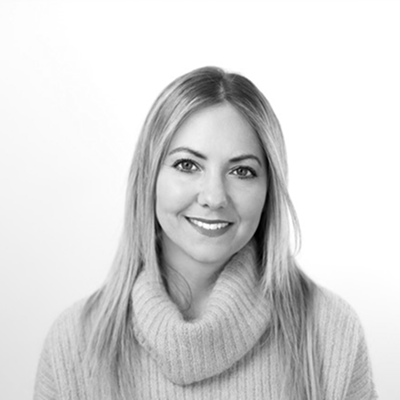
ASKING FOR A FRIEND
One of my team has been diagnosed with ADHD. What do I do?
ASKING FOR A FRIEND - QUESTION
Sharon votes for curiosity over assumptions. Ask, listen, and co-design support. Diagnosis should not become a cage. Renee notes that roughly one in five agency folk report some form of neurodivergence. Make it the team versus the challenge, not person versus team.
When a team member shares their ADHD diagnosis with you, it can feel like you’ve suddenly stepped into uncharted waters. You want to be supportive — of course you do — but you might not know where to begin or what’s okay to ask. This conversation with Sharon Draper, a psychologist with over a decade of experience helping people feel safe and understood, and Renee Hyde, who leads client and agency relationships at Howatson+Company, sheds some light on how to navigate this moment with empathy, curiosity and care.
Approach with Curiosity, Not Judgement
First things first: be curious, not judgemental. It sounds simple, but it matters more than you might think. Sharon puts it perfectly: "I would say be curious without judgement. I'd encourage you to ask the person what it's like for them."
ADHD doesn’t show up the same way for everyone. So rather than relying on what you’ve read online or heard secondhand, focus on their unique experience. They’re the expert on how their brain works — your job is to listen.
Avoid the Identity Trap
It’s also worth being mindful of how some people relate to their diagnosis. Sharon shares an important watchout: "I find people... some people tend to use their diagnosis as a part of their identity as well and I think it's important to be aware of that... because I've got quite a few clients actually on workers comp who have ADHD and like this is who I am and this is how you need to just treat me you know I only can do this thing and it's very rigid and very sort of fixed and I think I don't think that's healthy either."
In other words, don’t let the label do all the talking. It’s about striking a balance: acknowledging the reality of ADHD while keeping room for flexibility, growth and possibility.
Focus on the Individual
It all comes back to the person in front of you. Sharon puts it beautifully: "The most important thing is to try and work together how is it like what is it like for you specifically because again... if somebody one person might say that they're feeling down somebody else says that they're dead inside like there's quite an extreme so how what is it like for you."
Think of this as co-creating understanding, rather than trying to fix or diagnose.
Create Partnership, Not Division
One thing to watch for is letting a diagnosis accidentally build walls instead of bridges. Sharon explains: "Our diagnosis can kind of divide people as well because then oh now my boss is not accepting my diagnosis or and it becomes us against them. It's very much about honesty... what is it like for you can you share that with me I'd like to hear how it is for you."
At the end of the day, it’s about working together: "How do we work together to help you be as your productive self kind of thing." You’re not on opposite sides of the table — you’re on the same side, facing the challenges together.
The Reality in Creative Industries
If you work in a creative environment, chances are neurodivergence is already woven into your team culture. Renee shares a telling stat: "We ran research last year there's 20% who have shared that they've had some sort of diagnosis in the industry and I think the likelihood is is that it's much higher... look around our teams there's very very high likelihood that someone's got some sort of neurode divergence."
This isn’t unusual — it’s just real life. And it’s part of what makes creative workplaces so unique.
When Someone Shares with You
Renee reminds us how significant it is when someone opens up: "If someone's sharing something with you it's for a reason so being partnered communicating around how that impacts them and how what they would like from you is super important."
The trend towards openness is a good thing: "I think it's great that people are sharing more... particularly in kind of high performance cultures that people are aware that there are different shapes and around kind of how everyone shows up."
Practical Steps Forward
So what do you actually do next? Sharon suggests a simple but powerful step: "I would also even ask you know are there any resources that have helped you so that I can learn more about it but how do we work together it's always us against the thing I think that's the most important way to look at it."
It’s not about accommodation out of obligation — it’s about genuine partnership. You’re tackling the challenges together, not against each other.
our guests
Industry Leader
.png)
Renee Hyde
Howatson+Company
Mental Health Expert

Sharon Draper
The Conscious Project
Host

